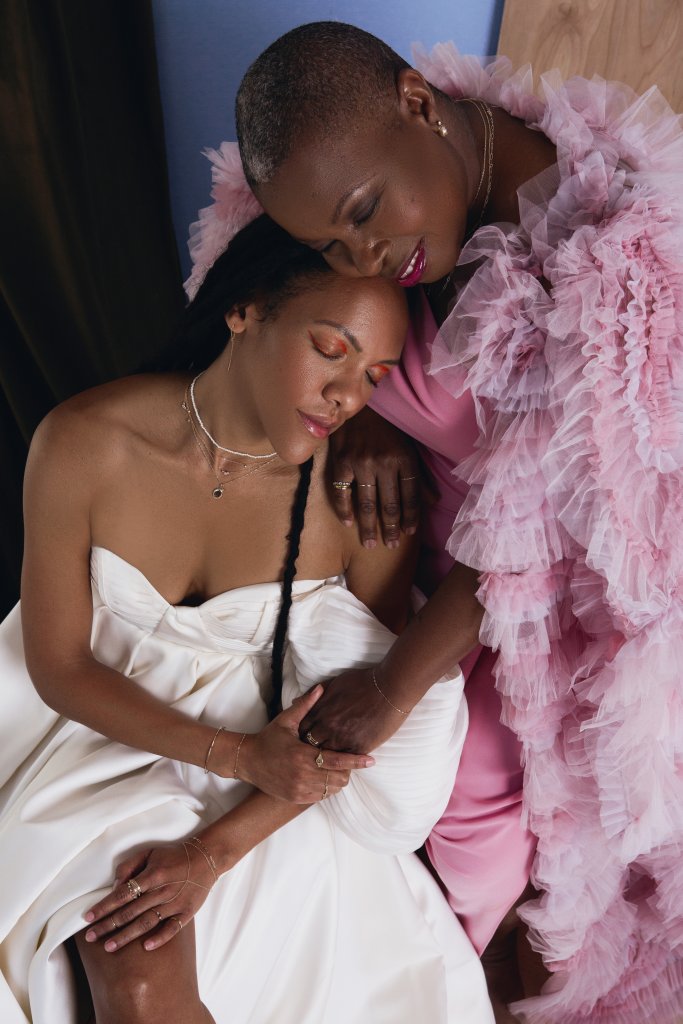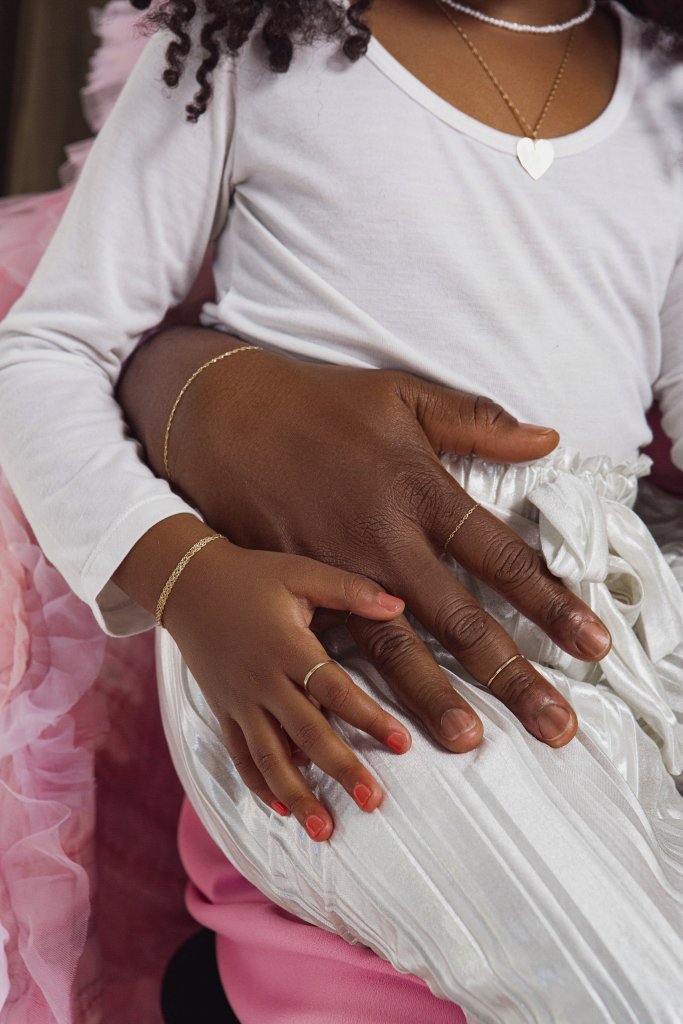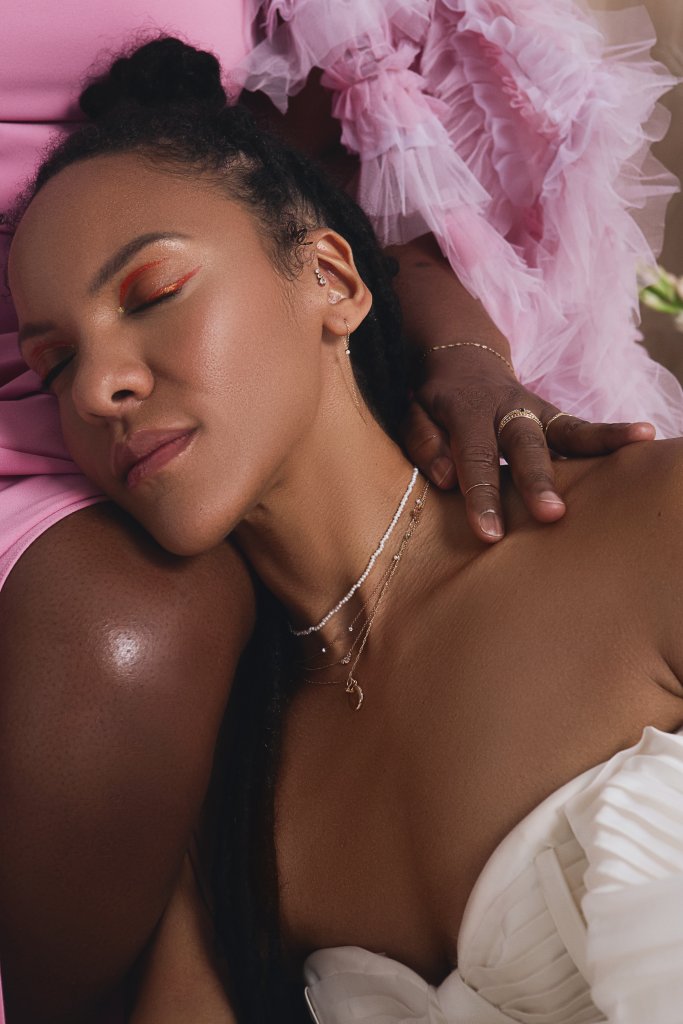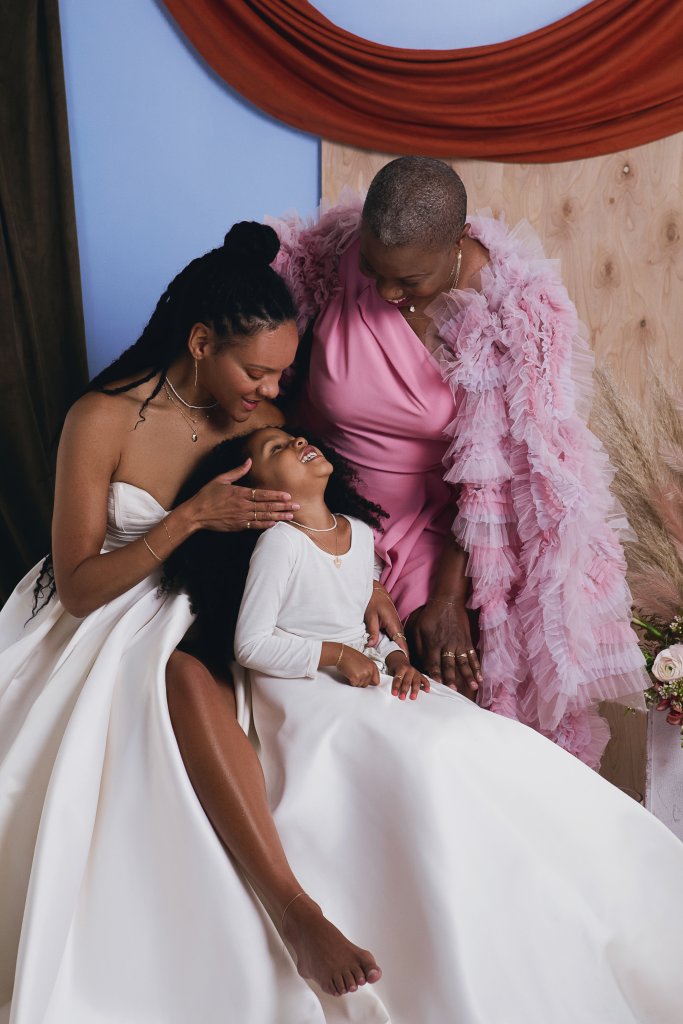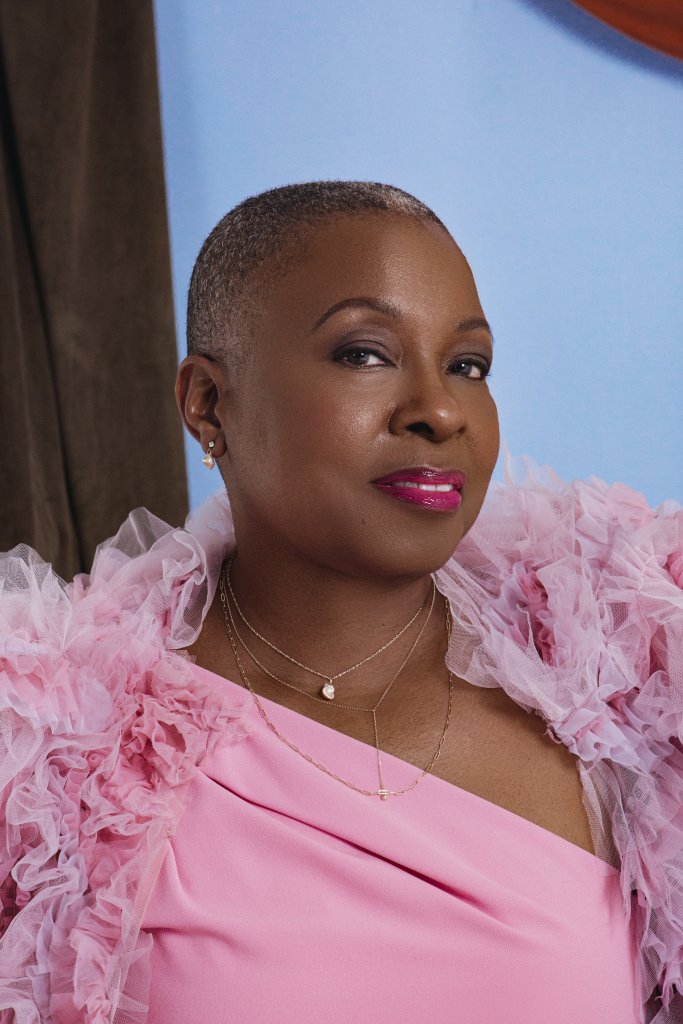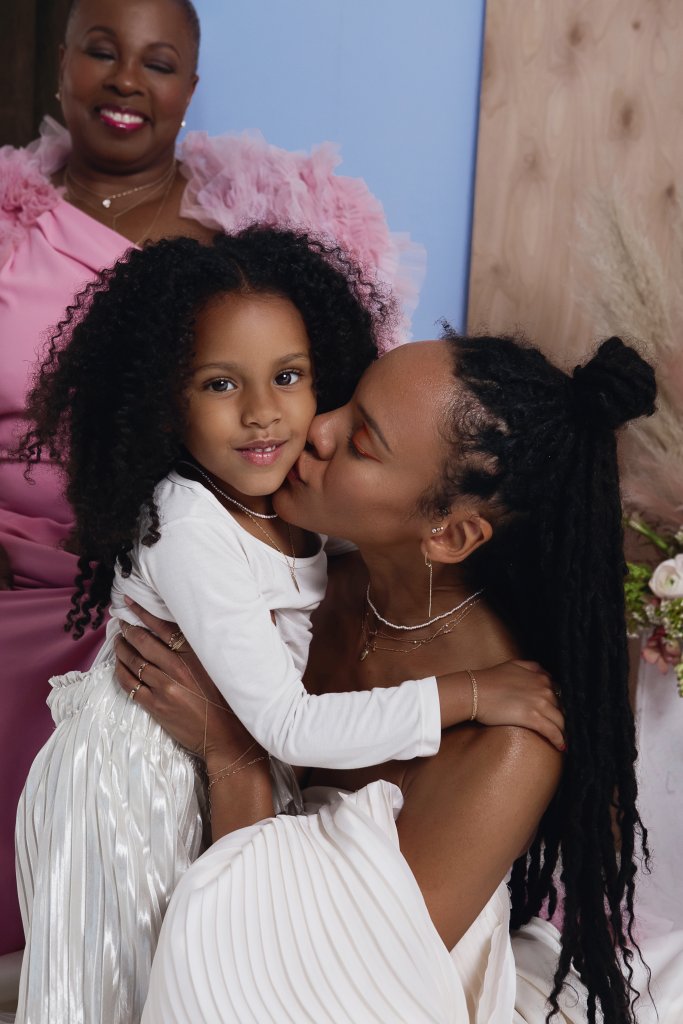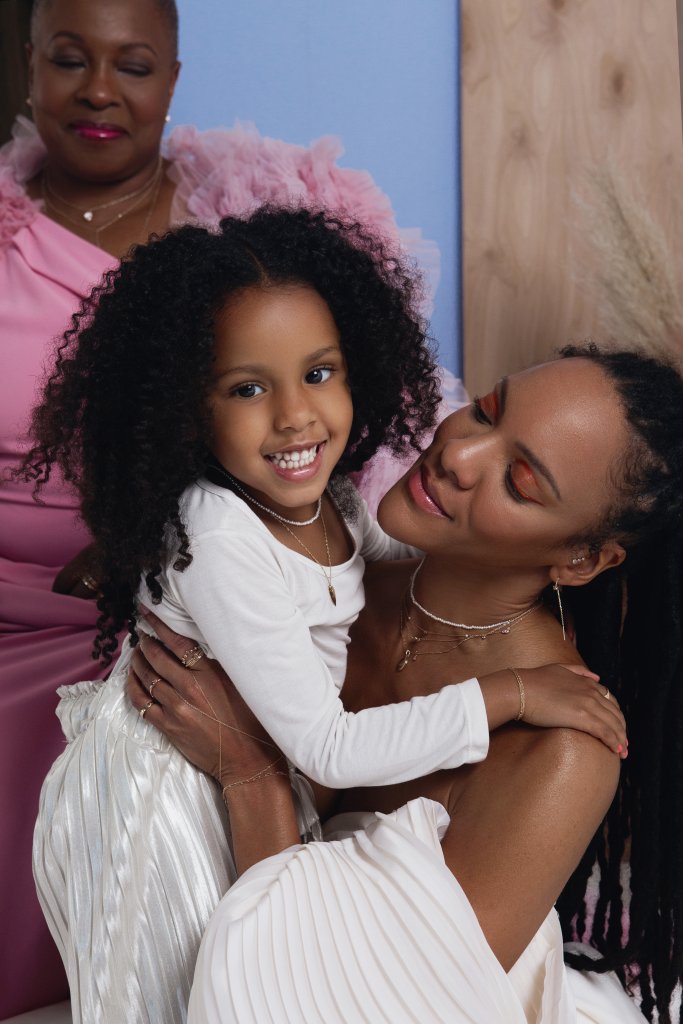The range of emotion I experienced throughout my pregnancy, delivery and well into a year postpartum was wide, to say the least. My daughter was born minutes before midnight, 10 days past her June due date in a pool of water that took up most of the living room of our dimly lit townhouse duplex in Bedford Stuyvesant, Brooklyn. I’d been experiencing intense contractions for days. The summer heat made endurance feel impossible. My ankles hurt. My organs felt as if they all sat right below my neck. My daughter, however, was taking her time. I turned to meditation, prayer and conversations with my mother to beat back the waves of anxiety and deep fatigue that grew with each day that I awaited her arrival. I was also frustrated. My midwife, Memaniye, seemed way too calm for my liking. In my distress, she was steady. Her brow never raised. Tone never changed. “I am here to, in any way that I can, ensure that your baby gets here safely. You have to commit to and do the work.” What the fuck. I mean, honestly, I remember journaling. I was tired. And pissed. And wanted someone to take responsibility. Birthing is difficult. Home-birthing without medication, can be even more so. And if I’m being totally honest, I wanted an out which Memaniye, from my desperate perspective, refused to provide. She listened for red flags and made sure that my baby and I were physically okay. She didn’t ignore me or brush me off. But she refused to pity me. Thank God for Memaniye.
I was way too in it to see clearly, but with each, “Listen to your body, it knows what to do” Memaniye empowered me. “Talk to your daughter,” she instructed. “She will come when she knows it is safe to.” I huffed and puffed and sat my ass down. I got my breathing in order. I silenced my thoughts. I began to speak. Sweet baby, my love for you is greater than life itself. Mommy is here with you. Do your best, and I will do the rest. Active labor began almost immediately. Leahn was born five hours later with her umbilical cord wrapped twice around her neck. Memaniye, who was seated by the pool guiding my labor with an almost trance-like calm, freed her of the cord in what seemed like a quarter of a second. She lifted Leahn from the water and laid my crying child on my chest. Leahn calmed and opened her eyes to see my face before settling into my bosom. I sobbed in the deepest gratitude I’d ever experienced. I had never felt so soft. I had never felt so strong.
That is what Nya Memaniye Cinque does.
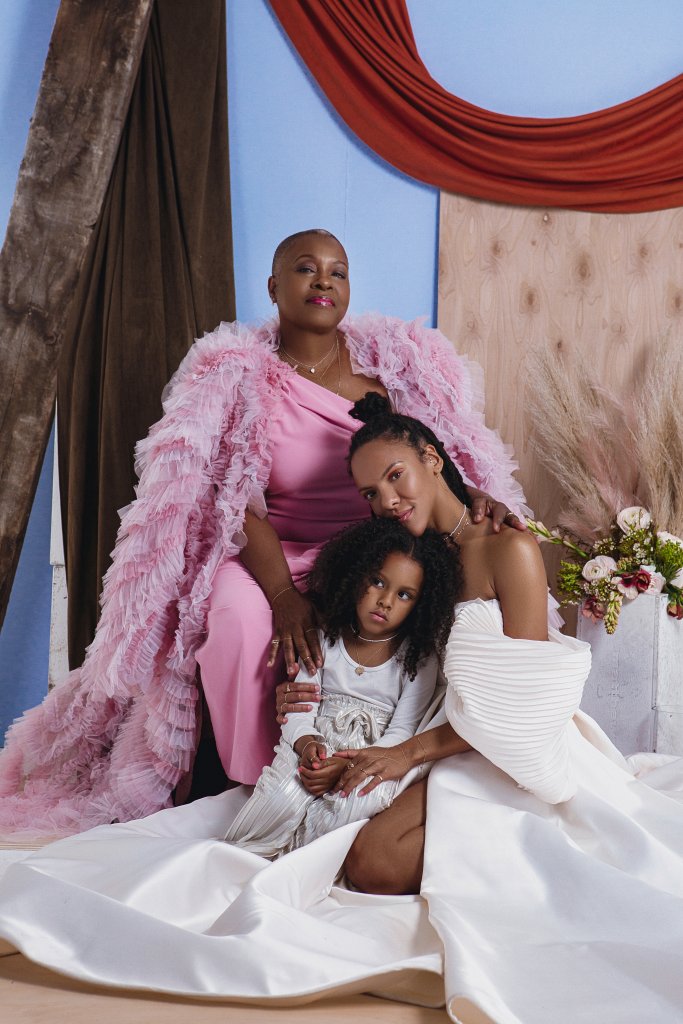
How would you define midwife, Memaniye?
I’d say…someone who is dedicated to helping new little people get here safely. And part of doing that means helping the adults who are having them be strong, be solid in who they are, so that as they continue to grow these little human beings, there is continuation and a legacy is maintained.
How many little humans have you helped get here?
About 700.
700!
Yes.
How do you keep your strength? What do you do to ground within all of that? Because that is… whew.
Mm-hmm. It is. (laughs) I pray a lot. Prayer is not just the spoken word, you know. Prayer is dance, prayer is music, prayer is, you know, whatever your heart sincerely intends.
Do you feel there’s a spiritual aspect to midwifery?
Absolutely.
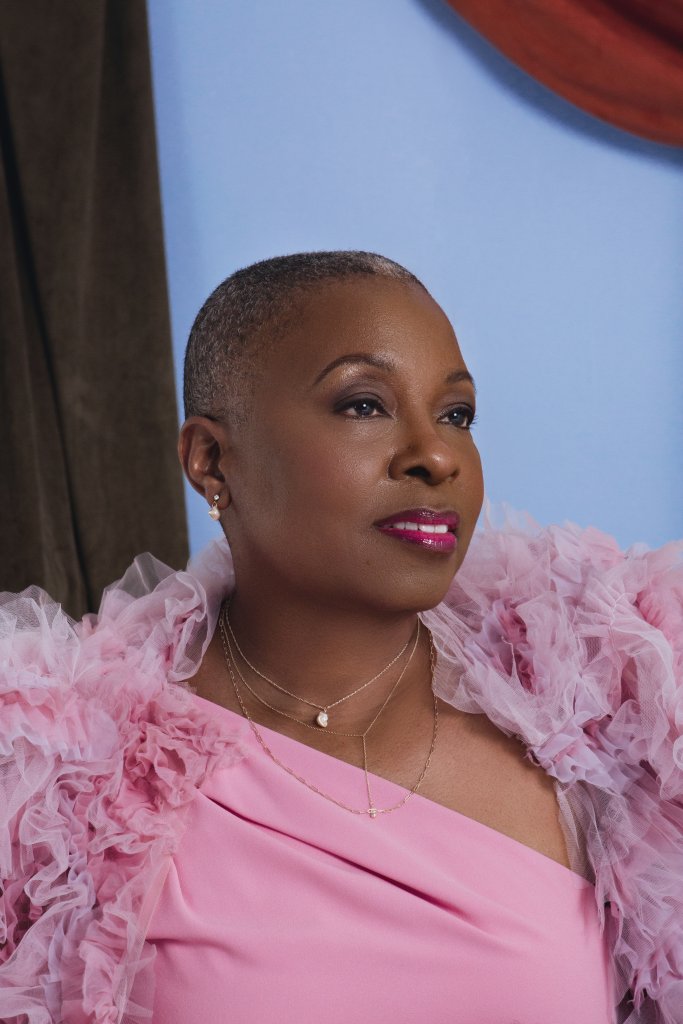
Memaniye was born and raised in the northeast Bronx to working class parents. Her mother, a native of East St. Louis, Illinois, worked as a telephone operator. Her father, from NY with roots in South Carolina, was a truck driver. Neither graduated high school. Both, therefore, made it their business to ensure that their eldest, Memaniye, and her three siblings remained focused on getting the education that they themselves had not. That all four of their children ended up with careers in healthcare perhaps speaks to their parental success. However, their strict rule during her childhood led Memaniye to seek a path of her own.
Tell me about your childhood.
My childhood came with good things, of course, as well as traumatic things. I think my parents, you know, they did their best. I started on my own spiritual journey by choosing to go to church at 11 years old. (laughs) I explored Christianity a lot. I would say between the ages of 12 and 17, I would go to church on my own. I would just find churches and go to them.
Alone?
Yup.
For years?
For years. (laughs) Yes.
So as a preteen you just said, “You know what? I need a little Jesus in my life”?
Yes. My parents never went to church. I have never seen my parents go to church. But my mom talks about being forced to go to church every weekend by her mother. So, she never forced us. I explored Rastafarianism in my first marriage. And that ended with my marriage. I [now] practice a religion called Eedyi. It’s a traditional African religion based out of Senegal, Mali, Guinea Bissau and parts of other neighboring countries. I would say I have solidly been on that journey for about 25 years.
How did you discover Eedyi?
As I mentioned, my first husband, the father of my first two children was Rasta so, I went through this cultural transition of being Rastafarian and, you know, exploring what all that meant. My marriage was a very abusive one. At the same time that was happening, and separate of the Rastafarian culture, I was going through a Rites of Passage training and I met a group of very supportive women in that process. That was helping me to get myself more grounded. So my path, both for my life and for my spirituality, was changing. My female Rites of Passage was a social training rooted in the cultural traditions of Senegal and Mali. The Atilah, the mentor of the Rites of Passage training, is a Priestess of the Eedyi religion. That was my introduction.
And when did midwifery enter the picture?
I knew that I wanted to be a midwife, as the result of my first home birth.
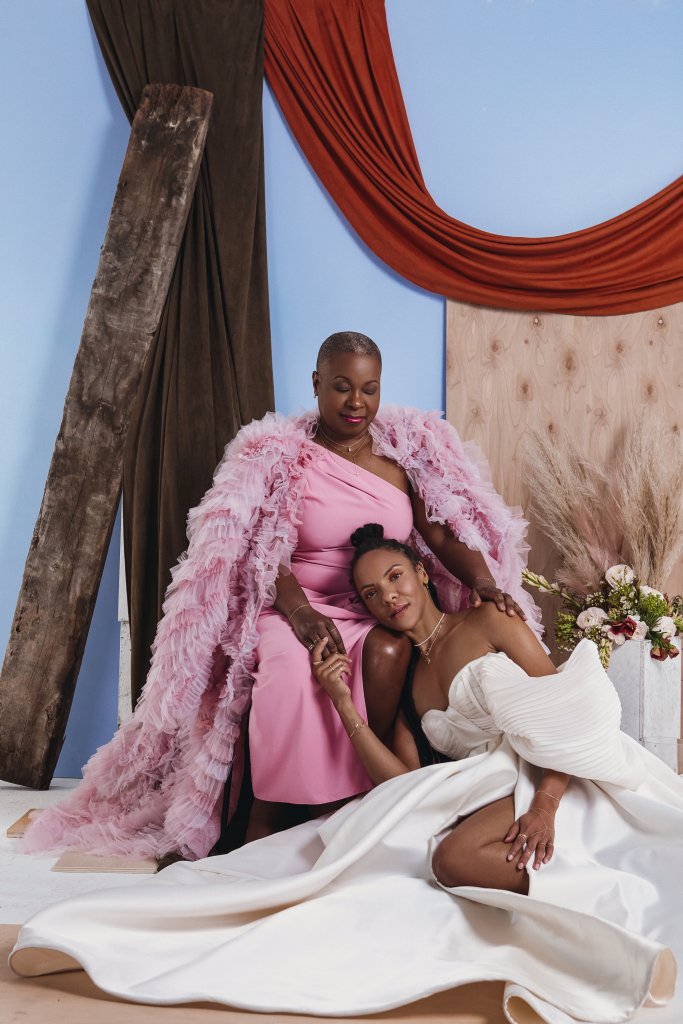
Okay, yes. Tell me.
My career path was in transition, so to speak, because I was working [on a Bachelors in Psychobiology] at NYU. And my working at NYU was actually the result of me having had my first child a year before I was to graduate. I just found a job at the school in the Bursar’s office to, you know, try and figure out my life. When you worked for a university, you got tuition remission. So I was going to school and they helped to pay for it. I was pregnant with my second when I had an energy reading done. I was told in that reading that it would be best if the child I was about to have was not handled by any white people in delivery. The only way that I could ensure that was to have him at home. I didn’t even know that home birth was legal in New York… but I was going to do it anyway. About a year after my Rites of Passage, I found another spiritual community, the Ausar Auset community, that had midwives in it, and I hired one to come and help me birth my baby. It was that process that made me say, ‘Okay, this is what I wanna do. I wanna do what she’s doing.’
What was that first home birth experience like for you?
It was wonderful. There were no men. A bunch of women and children. I had a sisterhood that supported me. The midwife came with the other sisters that supported her and they brought their children. I lived in a four family home at the time. One of the sisters that I trained with also lived there. So she and all her children were also present.
A literal village then.
Easily more than 20 people. All dancing and singing. It was great.
And that changed you forever.
I did some investigation around what I needed to do to be able to practice midwifery legally. I found out that it was, in fact, legal in New York, and that as a nurse midwife, I would be able to practice in any state. I chose that route. My son was born in April, I started nursing school that September.
With her marriage ending and two children in tow, Memaniye discontinued her PreMed path at NYU and instead took her Associates degree and her academic credits to New York City Technical College where she earned her nursing degree. Ten years after completion, with two more children and a new partner, she found a local inexpensive midwifery program at Brooklyn’s SUNY Health Science Center and worked to attain her Nurse Midwife certification. But even while a single mother with no financial support, Memaniye had tapped into the focus instilled by her parents to pursue her path. She may have inherited the trait of sticktoitiveness from her mother who gave birth to Memaniye at 16 after being “kind of tricked into sex”. (In my prayers, even before she passed on, I’ve always been grateful to her for giving life to me. For, in that space and time, being able to say, ‘I’m just gonna do this. I’m gonna have this baby’, she says.) Memaniye would not be deterred and for certain has similar gratitude from the hundreds of humans birthed through her Brooklyn-based practice, Dyekora Sumda Midwifery Services. Not to mention the five she personally brought Earthside.
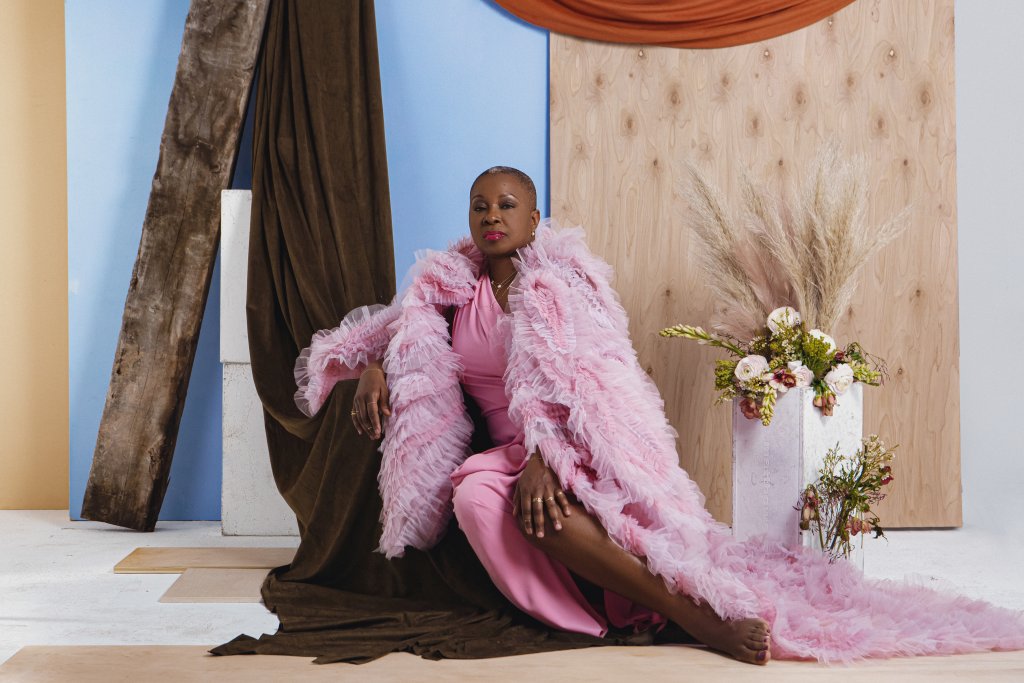
ON RAISING HER OWN CHILDREN
When I was a child, my parents focused on this idea of no sex until marriage, graduate college, get your profession and things together, before you even think about dealing with boys. And of course that was difficult because when you’re a teenager, that’s when you wanna focus on the boys. (laughs) So while I appreciated the focus, I think [their approach] lacked a balance to help me to navigate relationships and what life really looked like. Now, as a parent, I completely understand that you do what you think is the best at the time that you’re doing it. I just have a different perspective. I allowed my children to be teenagers, so to speak… One of the things I impart to my children is knowing what is going on in their bodies. No one is better than you at saying what that is, right? So when asked what is wrong, or what is it that you’re feeling, we have to be able to tap into where the pain is. We have to be able to know where the upset is.
ON EMOTION IN HER WORK
I think I’m always emotionally attached to what I do. And whether or not that is a hindrance or helpful depends on the circumstance. I have learned better as the years have gone by. I think I have learned how to better balance it for myself. The hindrance happens when you are so caught up emotionally that you can forget what it is you need to do as a provider. So while I always thought that I was doing that pretty well, every birth teaches me. I’ve had births where I can say that I need to better balance, that I needed to be able to have better discussions with the mom or the parents around what their responsibility was in this process. It varies with each one.
ON WHAT’S MISSING IN AMERICA’S HEALTHCARE SYSTEM
Honor and respect for women and mothers. A healthcare system that is dedicated to caring for all of its population and not just those privileged few who can afford it or have a status that affords them the opportunity for better care. Dr. Arthur James [a longtime physician, OBGYN and clinical professor at Ohio State University] calls it equity in healthcare. Not equality. Equity speaks to the fact that we need to give more to those who need, in order for them to meet us “up” where we are. Equity speaks to all aspects of the healthcare system seeing and doing through a lens that lacks bias and judgment and providing what is needed because it’s needed. Especially when it comes to going the extra mile. It exists in Cuba.
ON THE DEATH RATE OF BLACK WOMEN DURING CHILDBIRTH
There are many factors to this that include systemic, cultural, and individual components. Systemically, we are in a system where the color of your skin makes a difference in how you are treated, whether it be because of social racial bias or medical racial bias, and what you have access to. Culturally, Black and Brown people swing one way or another: we either have an inherent way of seeing the good in people and thereby ignore the possibility that the medical person standing in front of them has a bias, or the other way of knowing that we’ve been denigrated in the medical community so long that there is no trust at all. So it distorts all communication and ability to navigate the system. There is the individual component of not thinking that you are deserving of better care or a belief that even if you asked for it you wouldn’t get it, so why bother. Which is also a cultural component. Black and Brown people as a group don’t move through the world thinking that everything belongs to them, i.e. a sense of privilege, and therefore don’t expect that things can be done or obtained in any way they see fit. It is layered.
ON WHAT MIGHT SHIFT THIS REALITY
Changing this is a huge task that must be challenged on all fronts. I think one of the biggest ways to make a shift is for us to understand that we are consumers of healthcare. The people who look at their bottom line in this process understand that patients are consumers. But not all patients understand that they are consumers… I believe the greatest work of overcoming this challenge will be in each one teaching one and moving on what you have learned. I believe the work is on providers and consumers to demand equity and handle the social constraints that are embedded in the statistic. Black maternal and infant mortality being higher than whites has been an issue since the time the statistics started being compiled more than 40 years ago. Is it going to change because people are yelling about it now? Perhaps. Hopefully.
ON THE INCREASE IN DEMAND FOR MIDWIFERY
I don’t have actual figures but I do think there is an increase [in women seeking midwives]. Especially in people saying that the reason is because of hearing about the Black and Brown maternal and infant mortality rates. Years ago people came because they were looking for a natural way to birth without a lot of intervention. It was more about personal conviction than of fear of the information in the current popular news story. From an anecdotal perspective, Black people are having to jump over more hoops than white people in order to get to, what I consider, the ideal place of being at peace that birth is a natural process, and trusting their choice and their ability to birth the way they want.
ON HER MOST DIFFICULT MIDWIFING EXPERIENCE
A truly difficult experience that I had to work through was when a baby passed during labor. It’s only happened once. There was a mom who came late to me because she was thinking about free birthing but then decided that she did maybe want someone to be there… but be very hands-off. It was hard for her to find a provider like that, until she came to me. We talked about it and I was open to it. In the process, there was one time that I went to check the heart beat and there wasn’t any, so… It was difficult. Her strength in the process and her knowledge and what she knew to be her responsibility, I think is what held her up, what gave her the faith and the strength to say, “This was in God’s hands.” And to not blame anybody. It was a lot. There have been cases when the outcome wasn’t necessarily a death, but there are emergencies where you have to run to the hospital. I’ve had times when I’d ask myself, ‘Is it all worth it,’ you know. But those instances don’t happen more often than the good ones. And the good ones are just… wonderful.
ON FEAR AND LETTING GO
I think for all people there is a certain level of fear about birth that I would like to see decrease. Fear and birth go hand in hand, unfortunately, so I have had to handle it in various ways throughout my career. What is also unfortunate is how much it has increased over the time of my career. There is a natural fear of pain, the natural fear of the unknown: what is birth going to be like for me? Is everything going to go well? I hope I don’t have to have a c-section. Even the natural fear of raising a child. And these are all things that get discussed, and hopefully alleviated, as much as possible during your prenatal care. Now add to that the fear of birthing while Black which has embedded in it the fear of not being listened to, the fear of not having/or being an advocate for yourself (in a moment when you are most vulnerable), the fear of being a statistic, and the fear of a Pandemic. When it doesn’t get handled well enough during the prenatal process, it certainly shows up in the birth process. In a multitude of ways including but not limited to long labors, breech babies, breaking of waters before labor even starts, and so on… You know, for you, Qimmah, and for a lot of women, I think I wanted for you to get out of your head. I wanted you to allow the energy, and the physical process of what you were going through, to happen. Oftentimes, in labor, we get caught up in the pain and that feeling of just wanting it to be over. And that thought in and of itself stalls the process. I wanted for you to let that go, let go of time, let go of how much it hurts, and just, take it one breath at a time.
Nya Memaniye Cinque lent me strength. She helped me bring into this world the sweetest thing I’ve ever known. Memaniye’s birthday is this month. When I asked her if she believes that midwifery is her ultimate purpose, she replied: I can’t say midwifery is my ultimate purpose. I think midwifery serves my ultimate purpose of wanting to serve people. Thank you a million times, Memaniye. (And happy early birthday.)
********
I never take for granted the care and guidance to which I had access during my pregnancy. Many mothers, especially Black mothers, have birth stories that were affected by lack of access, practitioners who refused to listen, who were dismissive or even intentionally negligent. I often reflect on the disproportionate number of deaths of Black women and babies in childbirth in awesome sadness, and therefore, extreme gratitude for organizations, such as the National Birth Equity Collaborative (NBEC) doing tremendous work to remedy healthcare injustice and inequity.
When Catbird, an ethically sourced, conflict-free, Brooklyn-made jewelry brand, reached out about a Mother’s Day partnership, I knew immediately that it must be wrapped in intentionality. I knew that we must honor those doing the heavy lifting to provide the support that should be but is not systemic… the doulas, the midwives, the holistic practitioners, the doctors and nurses who fight to shift the current healthcare system from the inside. I knew that we must uplift those who are not often thought of or considered on this day: those estranged from our mothers… those who have lost our mothers or children… those who are unable to conceive or carry… those who choose to not.
HANNAH is sending love to all mothers as well as everyone greatly triggered by Mother’s Day. We sit with you. We see and honor you.
You are so soft and you are so, so strong.
********
A huge thank you to Catbird for alignment in energy as well as action; the Catbird Giving Fund has made a lovely donation to NBEC in honor of this partnership.
********
creative direction // Qimmah Saafir
creative production + set design // Robert Vance
photography // Falyn Huang
photo retouching // Nataly Nikolaeva
styling // Sydnee Paige
makeup // Tara Lauren
qimmah’s hair // Ronnie’s Locs
location // Navy Studio
********
wardrobe credits //
on Nya Memaniye Cinque | dress, Halston via Rent the Runway; jacket, Karen Sabag
on Qimmah Saafir | gown, Karen Sabag
on Leahn Saafir-Pope | top, Uniqlo; pant, Zara Kids
on all | jewelry, Catbird
🖤
